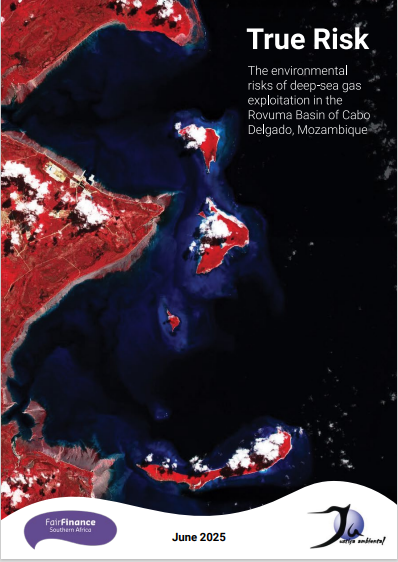'True Risk: The Environmental Risks of Deep-Sea Gas Exploitation in Mozambique'
There is not enough research on either the ecology and biodiversity of the Rovuma Basin, or the impacts of deep-sea gas exploitation, to be able to assess the full extent of the harm that could be caused by gas projects.
Deep-sea gas exploitation plans for Mozambique’s Rovuma Basin in Cabo Delgado will have potentially catastrophic impacts on the regional ecology and biodiversity. The Rovuma Basin is within an important centre of biodiversity in the West Indian Ocean, with interconnected habitats – including coral reefs, seagrass beds, and mangroves – that provide shelter, food and nursery grounds for invertebrates and fish. These species in turn support larger marine creatures including whales, dolphins, dugongs and turtles, as well as sea-dependent communities. The region is vulnerable to climate change impacts and would be severely affected by the gas projects impacts, which include severe chemical, physical and acoustic pollution, and related stresses.
- The report provides a broad assessment of the environmental risks of deep-sea gas exploitation, identifies key information that is lacking, and offers an indication of the flaws and weaknesses in the environmental risk assessments conducted for the Rovuma Basin gas projects.
- The Precautionary Principle or First Do No Harm Principle must be applied. A moratorium must be placed on the Rovuma Basin gas projects until the companies involved can prove that there will be no irreversible harm.

